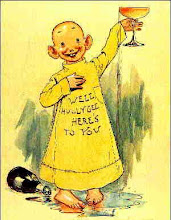
But I wish to start with the most important of these, my meeting with two very important figures in the contemporary comics world – Woodrow Phoenix and Sarnath Banerjee. I was already familiar with Banerjee’s work and managed to get him to sign my copies of his books, Corridor and The Barn Owl’s Wondrous Capers. Phoenix was a revelation for me, I am sorry to say that I wasn’t aware of his work before that day.
I was late by half an hour, and yet enough was thrown up to make this a very productive event for me, indeed. The most important question thrown up was when Phoenix mentioned the tendency for today’s so called graphic novelists and (their readers) to disregard the culture of children’s comics. Why is there a tendency for writers-artists to move away from the children’s form towards more mature definitions? It is children’s comics that create the language and vocabulary in the minds of new readers and keep rejuvenating the medium for new generations of readers. That is true indeed. There is always a tendency to move away from childhood in all aspects of life. That is why comics have suffered versus the literature of written texts, and now even within this medium there seems the (unavoidable?) shift to more serious texts in order to be taken seriously. Is that really such a good thing?
I also liked Phoenix’s example of television to explain the meaning of comics as a medium. I reconstruct it for those of you who might want to know: Imagine if television only showed sports. Eventually people would think that all that a television is is a sports show, nothing more. And to take it further, eventually people would think television is something which is nothing but a sports show, while a magazine might be the way to know about books. The problem is that when we restrict the diversification of something, it comes to be known as whatever it is limited to. So comics is not just an Archie story, nor is it only meant for a certain demographic of readers, as was the general feeling. And nor is it a genre of entertainment but a medium, a form.
I just pray that more such events happen in Delhi soon. I promise to keep all of you informed of any such through this blog, and expect the same in return. An hour spent with figures actually working in the field is priceless.

